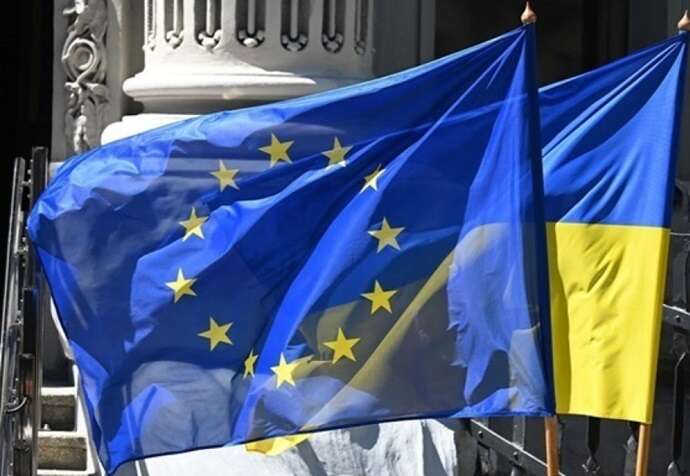
The EU is preparing a "reparation loan" for Ukraine based on frozen Russian assets
The EU is preparing a new mechanism to assist Ukraine using Russian assets. It involves a reparations loan that will be repaid only after payments from Russia.
This is reported by Reuters.
Following Russia’s invasion of Ukraine in 2022, the U.S. and its allies banned transactions with Russia’s Central Bank and Ministry of Finance. As a result, assets worth up to $250 billion have been frozen in the European Union.
The Russian Central Bank previously confirmed that approximately $300-350 billion had been blocked in total. These funds include foreign currency reserves, gold, and government bonds, about half of which were held in the West.
The majority of the assets are concentrated in Europe, many of which have already been converted into cash and are held in the Belgian depository Euroclear. The Russian Central Bank has not published precise data on the structure of the frozen assets.
As of the beginning of 2022, the Central Bank of Russia held assets in euros amounting to approximately $207 billion, in U.S. dollars - $67 billion, and in British pounds - $37 billion.
Additionally, the reserves included 36 billion yen, 19 billion Canadian dollars, 6 billion Australian dollars, and 1.8 billion Singaporean dollars.
Approximately 1 billion Swiss francs were also held. These assets were placed in securities, deposits, and correspondent accounts. The largest investments were in the sovereign bonds of China, Germany, France, the United Kingdom, Austria, and Canada.
Russia kept its gold and foreign currency reserves inside the country. Investments in yuan are held in China.
The EU is discussing the idea of using frozen Russian assets to provide Ukraine with a "reparations loan." This loan would be repaid only after Ukraine receives compensations from Russia.
The scheme involves replacing Russian assets with zero-coupon bonds issued by the European Commission. Such a mechanism could be implemented by a coalition of individual EU countries to avoid a potential veto from Hungary.
Previously, interest from the assets was used to service a $50 billion loan to Ukraine. However, the amount of accrued interest has begun to decrease.
According to Euroclear, as of June 30, it recorded 194 billion euros of Russian assets, which generated 2.7 billion euros in interest for the first half of 2025. For comparison, in the same period of 2024, 3.4 billion euros in interest was generated from 173 billion euros of assets.
Several bankers warned that the precedent of confiscating sovereign assets could undermine trust in Western government bonds. Belgian authorities also pointed out that this could lead to lawsuits against Euroclear and even trigger a financial crisis.